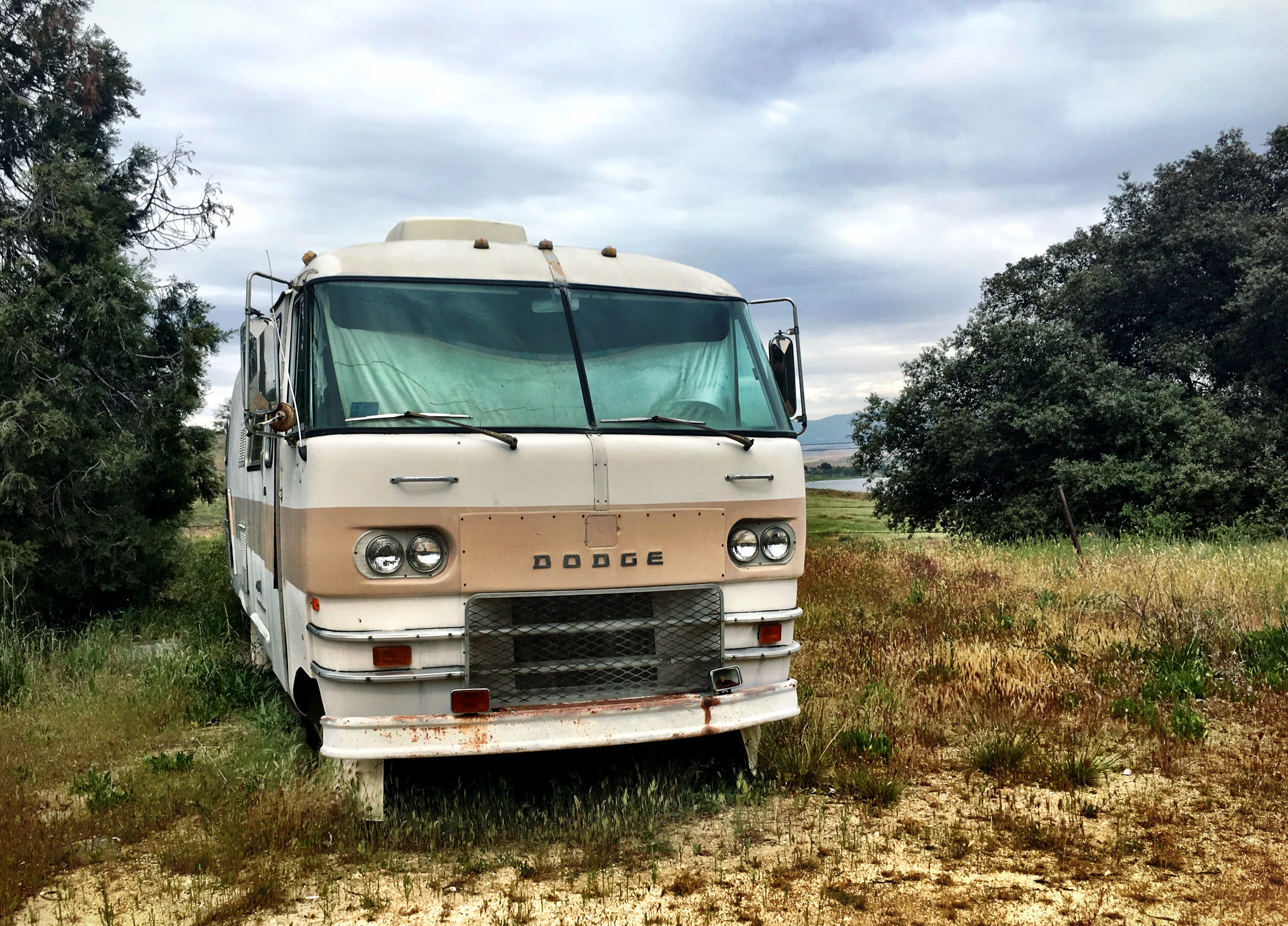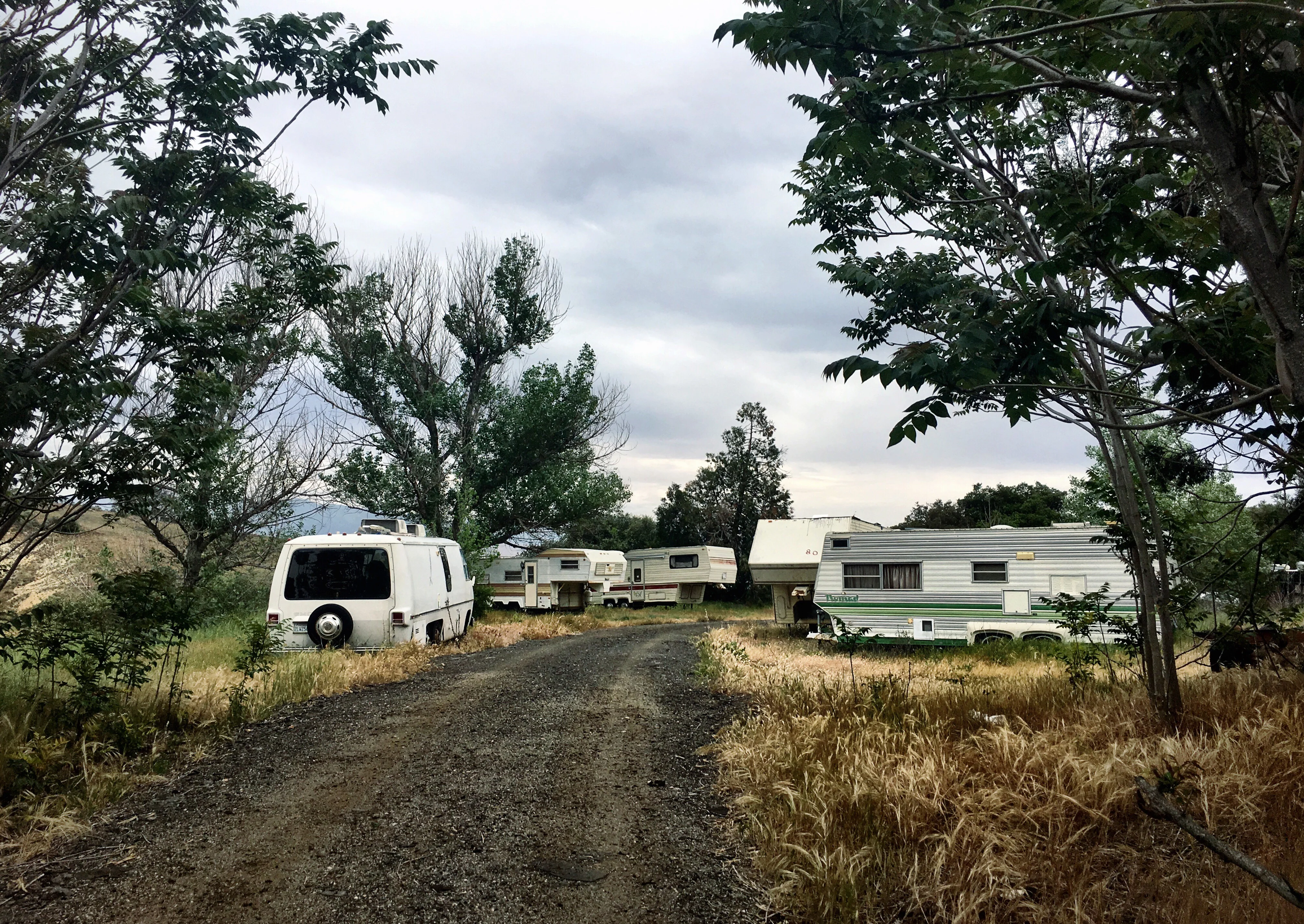Don’t Camp at a Bad RV Park, Follow These 5 Rules
If you’re anything like us, you’ve camped at a bad RV park before. Whether it was due to a lack of research or deceptive website pictures, sometimes there’s no escaping an occasional dud.
However, today we’re here to share a few time-tested rules that will help you avoid bad RV parks!
Let’s dive in.

1. Reviews from the Right Websites
There are lots of RV park review sites on the internet. Yet, only a few have the rich reviews that will actually help your research process. We use two primary sites:
- Campground Reviews: This is one of the oldest RV park review sites around. We love it for one main reason – the reviewers have been trained to include the details. Back in the day, this website didn’t have pictures. Because of that – the reviewers have added in-depth written details about each site they review.
- Campendium: We like this site primarily for boondocking sites. However, it’s image-focused design makes it easy to view user generated photos of each RV park.
If you get all your reviews from these two sites, you’ll be off to a great start.
2. RV Park Must Have Website
If an RV park doesn’t have a website they probably don’t understand modern customer service. This is the biggest red-flag of all.
In 2020 it takes $50 and a few hours to build an attractive website.
Make sure you only stay at campsites that have digital presence.

3. RV Park Must Have a Facebook Page
A website isn’t even enough! If you want to avoid bad RV parks, avoid the ones without a Facebook page.
Facebook pages are among the best ways to research a potential RV park. You can see user submitted photos (these type of photos ‘tell it like it is’). You can also read reviews and observe how the RV park treats unsatisfied guests.
If an RV park makes themselves accessible online, there’s a good chance they understand customer service.
4. Avoid Parks With Too Many Longterm Sites
There are a few ways to avoid RV parks with too many long term residents.
First and foremost, look through the user submitted photos. See if there looks to be “permanent RVs” in the background.
Secondly, if you’re searching for RV parks on Campendium, try to avoid the ones with the “home sweet home” icon. This signifies that the property has long term sites.
Lastly, many reviewers are quick to point out long term residents. Always keep this in mind when reading the reviews!
PRO TIP: To avoid old RVs, you may want to only camp at RV parks with the 10 year rule.

5. Be Skeptical About The Term “RV Resort”
There is nothing worse than an RV park that calls itself an RV resort.
In the world of RV campgrounds, there’s no rule about what signifies the “resort” title. Does it mean they have a hot tub? Do they offer daily activities? Or, do they just want to charge you more money?
We’ve stayed at many awesome RV resorts. However, when a standard RV park under delivers on the resort title, it’s doubly offensive.
They took my money and my trust.
Do extra research if you’re booking a reservation at a “resort.”
The Best FREE Camping in the USA
We love camping across this amazing country. And, we really love it when its free. Here’s our list of the 20 Best Free Campsites in the USA.
If you haven’t tried free camping before, also known as boondocking, take a look at our beginners guide to boondocking filled with everything you need to know to get started.
While your Don’t Camp at a Bad RV Park is very informative, we all can’t follow the 10 year rule. For instance, My coach is 15 years old. But it’s not trashy. If all the Good Campgrounds had this rule, where would that leave us who can’t afford a newer coach?
Enjoyed this blog. I had not thought about the Facebook site for the campgrounds. I’ll add this to our list. FYI, We had an experience with a B&B that didn’t have a web site a few years back. The place was terrible.
I’m with Mary McMillen, not all of us have a rig that is less than 10 years. But I suppose it depends on what you want to spend as well. We have been to several of the less than 10 years old campgrounds and never asked about the age of our toyhauler.
I hear ya Mary and Brent! We were in the market for a RV but couldn’t decide what we wanted. Now I am an engineer in automotive so I tend to pay attention to many different details that others may not. I took a year off and we delivered RV’s from coast to coast. We drove every size and make available. As a result of those 6 months of research, we made the decision to purchase our coach…..a garage kept 96 Winnebago Adventurer that is in immaculate condition. “She” has definitely made us happy campers!!!😉
“Avoid Parks With Too Many Longterm Sites”
Why? Your article says HOW to avoid such parks, but doesn’t say why you’d want to.
Agreed, Captain Quirk. I haven’t gone RV camping yet, but an aversion to being near long-term campers doesn’t sound like something I’m likely to have. Without having any RV-culture context, this sounds like somebody’s personal preference being passed as advice at best, or some kind of wierd class-based dog-whistle at worst.
Also… lots of people don’t use Facebook anymore for lots of reasons. There are a lot of social media platforms besides Facebook. Having a social media presence doesn’t seem compulsory for any location based business, let alone having a presence on each specific platform to cater to everyone’s individual internet habbits.
As a general advice article this feels a little person& specific.
I like to look at the actual place using Google maps. Long termers and shade amount can be determined, along with what neighborhood.
This answer is for Captain Quirk, who had the question about WHY one should avoid RV campgrounds with too many long-term sites. The answer is because people who live long term in such places tend to become NOSEY, BOSSY and TERRITORIAL. Long-Termers eventually get the attitude that they “own the place” and tend to look upon new campers with disdain, especially if they are younger folks (Long-Termers tend to be Retirees) or if they have children. I had read of case after case where Long-Term “Campers” got into stupid disputes with regular campers over nonsense like the kids playing outside, a hanging clothesline blocking a view, an occupied campsite blocking a view, short-term campers walking their dog, or people making movies or taking photographs. By avoiding places with a lot of Long-Term Campsites, one generally can enjoy a much more peaceful camping experience.